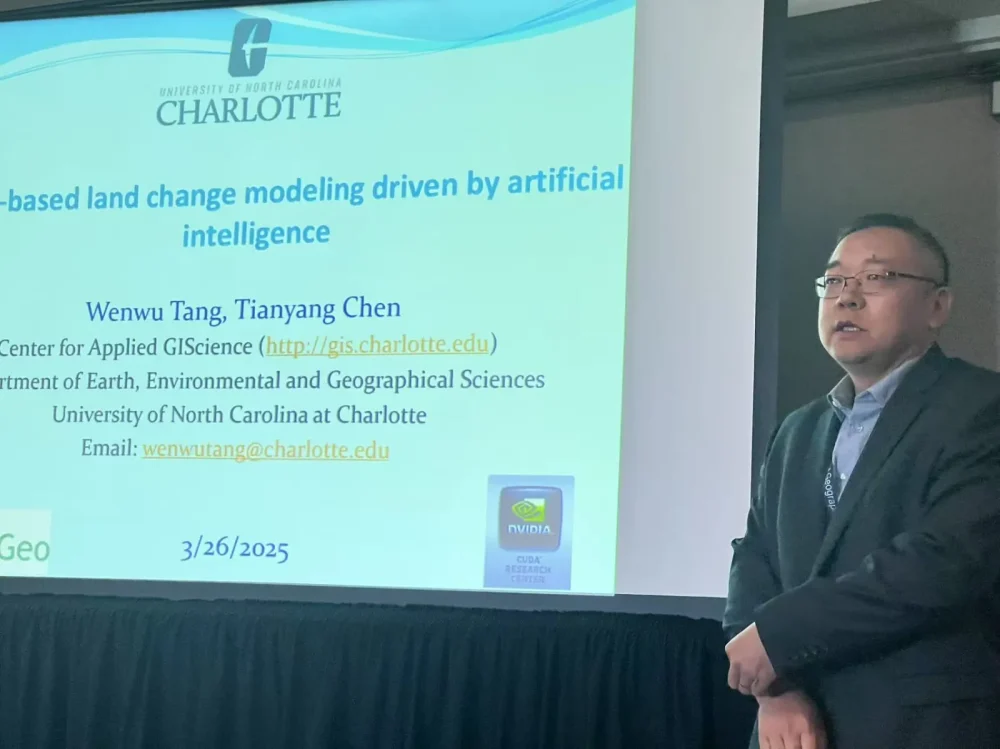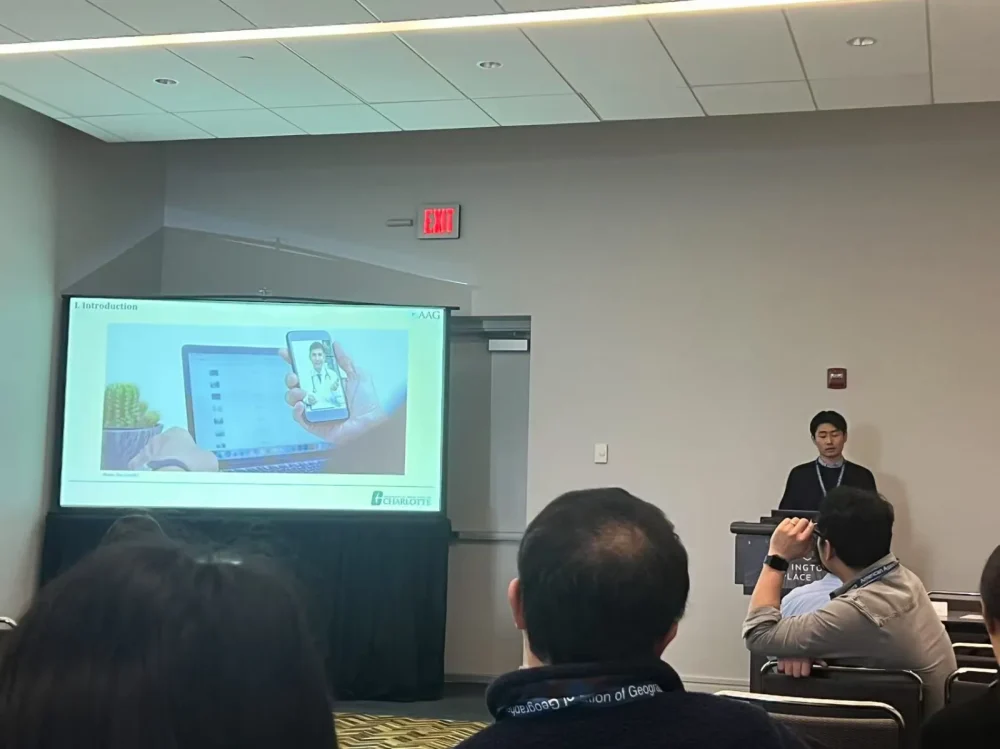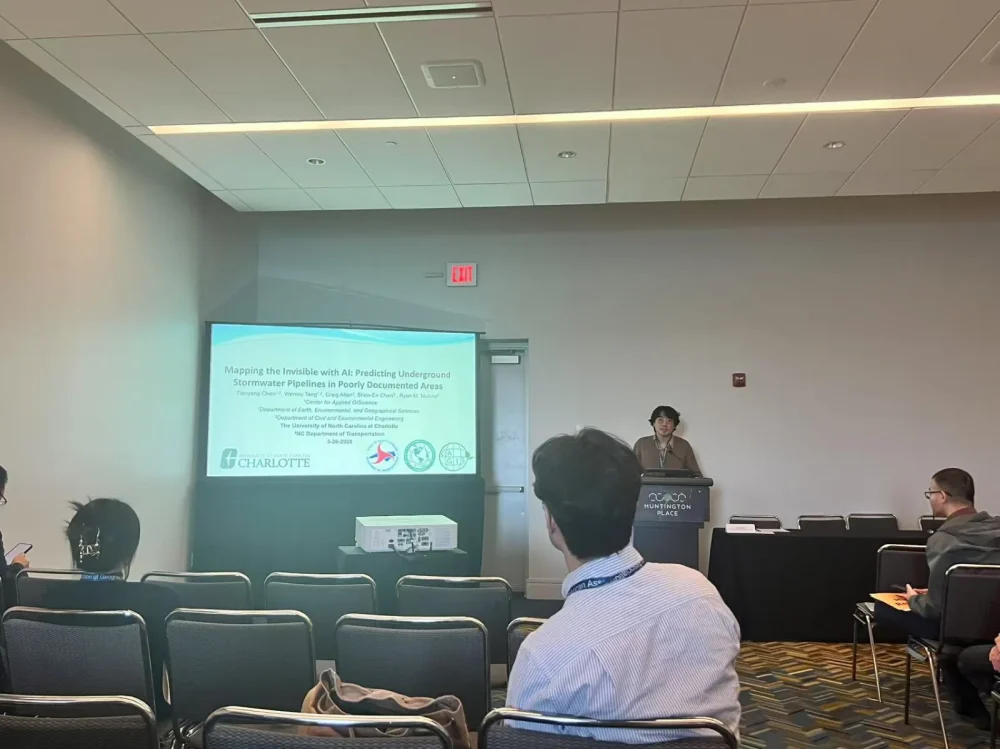CAGIS Researchers Present Cutting-Edge Work at AAG 2025 in Detroit

Several members of the Center for Applied Geographic Information Science (CAGIS) at UNC Charlotte proudly represented the center at the 2025 Annual Meeting of the American Association of Geographers (AAG), held in Detroit, Michigan, from March 24 to 28. The AAG Annual Meeting is one of the largest gatherings of geographers, GIScientists, and spatial thinkers from around the world, offering a dynamic platform to share the latest research and innovations in geographic science.
CAGIS researchers presented a wide range of impactful work at the intersection of GIScience, AI, and urban and environmental systems:
- Dr. Tianyang Chen presented “Mapping the Invisible with AI: Predicting Underground Stormwater Pipeline Locations in Poorly Documented Areas,” showcasing how deep learning can be used to infer subsurface infrastructure to support urban resilience and planning.
- Dr. Wenwu Tang presented on “Agent-Based Land Change Modeling Driven by Artificial Intelligence,” demonstrating how AI-enhanced agent-based modeling can simulate complex land use dynamics to support spatial decision-making.
- Dr. Yao Li presented “Investigating the Relationship Between Drug Use Practices and Mobility Patterns Among People Who Inject Drugs,” shedding light on public health vulnerabilities through a geospatial lens and mobility data analytics.
- Dr. Yunsik Kim delivered a talk on “Demographics-Weighted Two-Step Virtual Catchment Area (DW-2SVCA) for an Improved Telehealth Accessibility Measurement,” introducing a novel approach to measuring healthcare accessibility using geospatial and demographic data.
- Dr. Youngseob Eum presented “Evaluating the Impact of Light Rail System Expansion on E-Scooter Usage Pattern Changes in Charlotte, North Carolina,” offering a data-driven analysis of multimodal urban mobility patterns and transportation equity.
Session Highlights






The CAGIS team presence at AAG 2025 reflects our continued leadership in GeoAI, spatial analytics, and applied GIScience. We are proud to contribute to shaping the future of geographic research and technology.